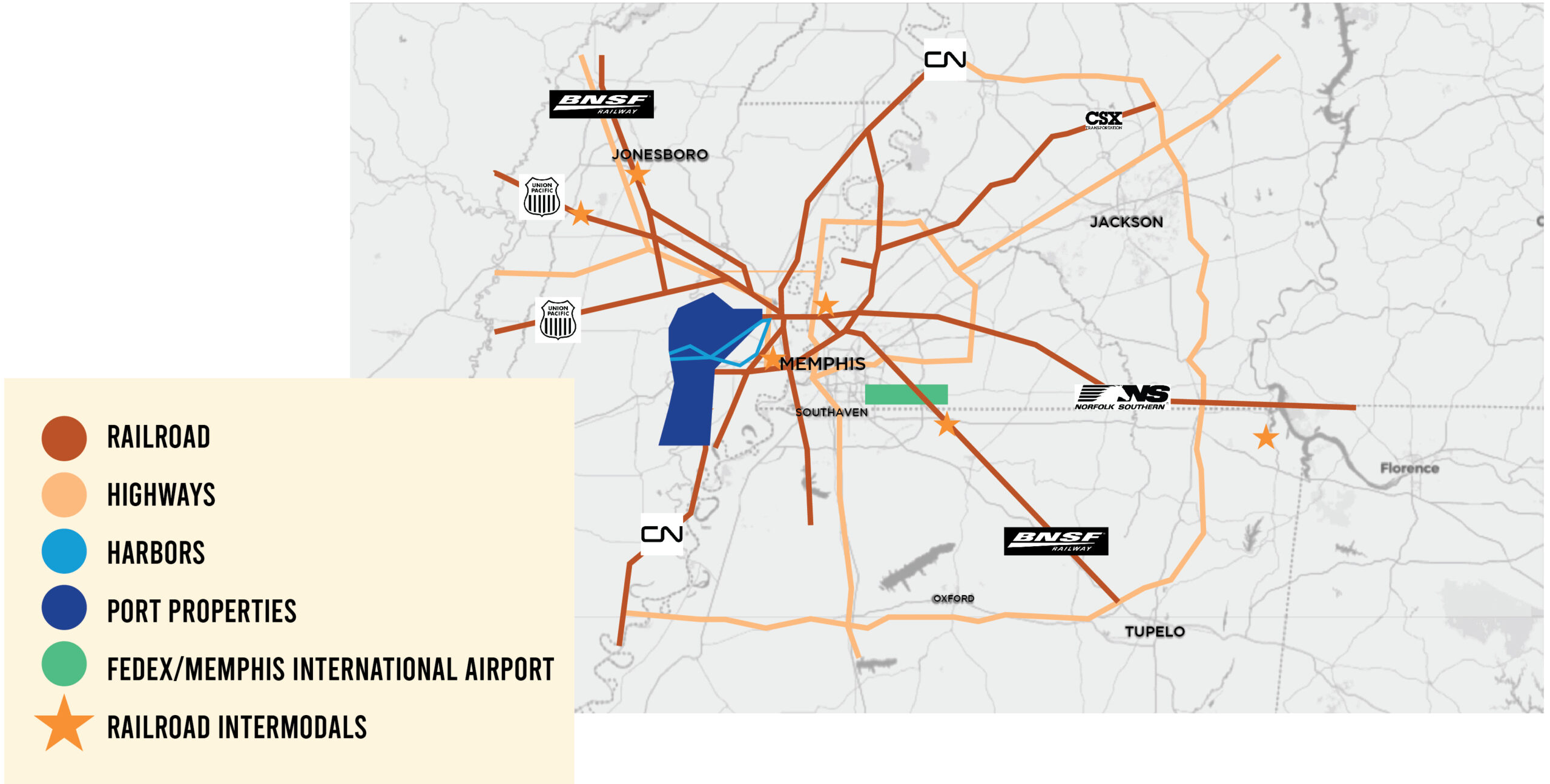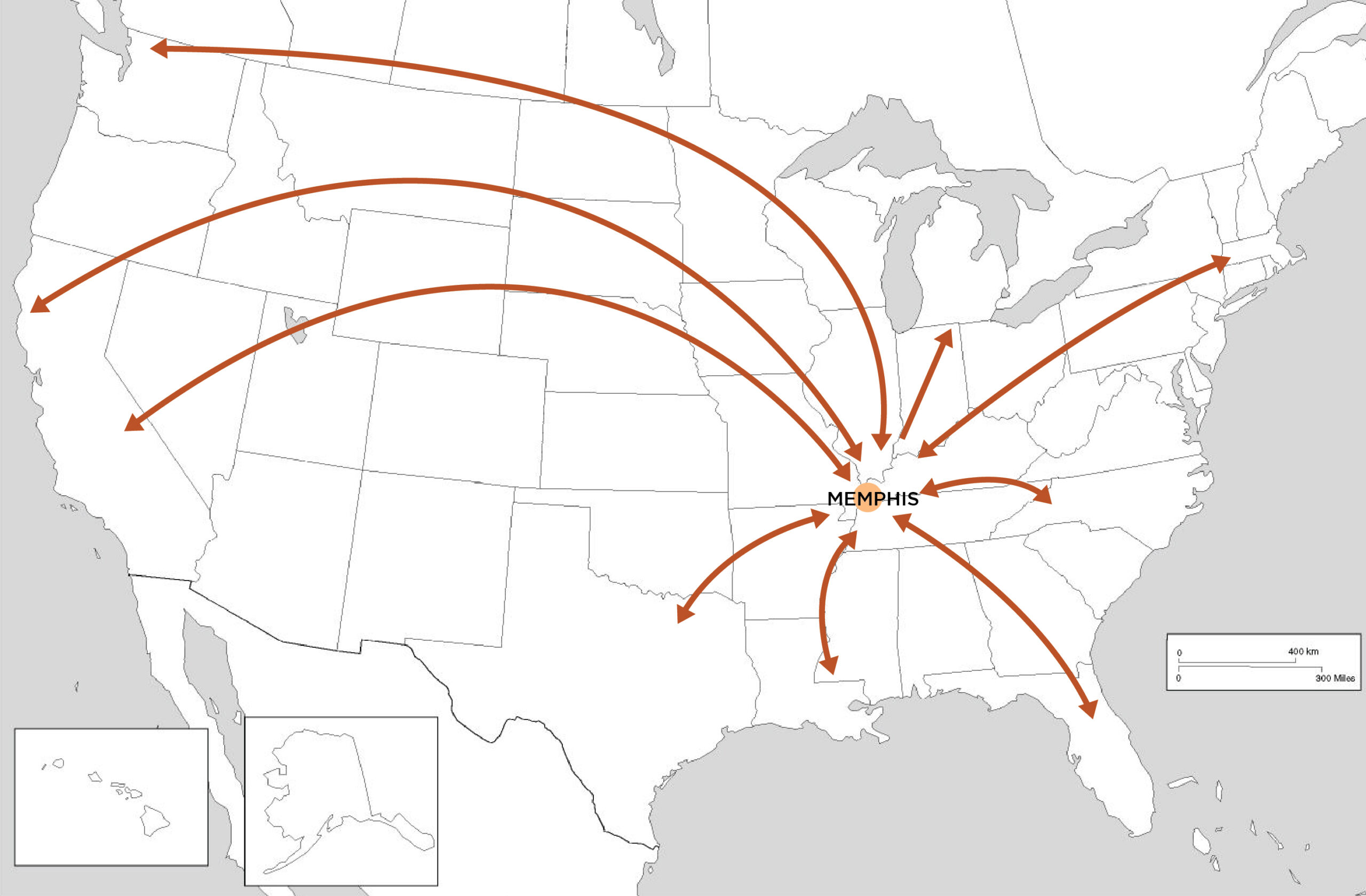Port of Memphis Assets and Impact
Powering Commerce and Industry Through Strategic Infrastructure
- Assets & Impact
As one of the largest inland ports in the United States, the Port of Memphis consists of three primary slack-water harbors: Pidgeon Industrial Harbor, McKellar Lake Harbor, and Wolf River Harbor. These harbors connect two major industrial parks – Pidgeon Industrial Park and President’s Island – both of which serve as vital points for waterborne and multimodal operations.
In 2022 alone, waterborne operations handled 8.2 million short tons of cargo, representing a trend as manufacturers and logistics providers continue to use the Port to move finished goods and raw materials. The value of products transported through the Port has grown significantly over the past decade, cementing its role as a central player in North American trade.
- Economic Impact
Building the Mid-South’s Future
The overall economic impact of the Port of Memphis on the local economy is significant, generating an annual $6.25 billion in total economic output. Port-related businesses create 5,361 direct jobs and support 8,494 indirect jobs in the region, with an annual tax revenue contribution of $71.7 million. This economic activity drives growth and fuels community development through capital investments made by Port-related entities.
$6.25 billion
Total annual economic impact.
5,361
Direct jobs created by Port-related activities
8,494
Indirect jobs supported through broader Port operations
$71.7 million
Annual taxes generated.
- Distribution & Logistics
At the Crossroads of Global Commerce

The Port of Memphis is the centerpiece of Memphis’s global logistics network. Its central location and advanced infrastructure allow it to serve as a vital hub for multimodal distribution. With access to major highways, rail lines, and the Mississippi River, cargo can move seamlessly between modes of transport, reaching more U.S. markets overnight than from any other city.
Memphis is one of the few locations in the country where cargo can cross the Mississippi River by rail or truck, giving it a competitive edge in national logistics.
- Strategic Location
Where North-South Meets East-West

The Port of Memphis benefits from a unique convergence of transportation facilities, including:
- Major interstate highways: Interstate 40, Interstate 55, Interstate 69 and seven major U.S. highways.
- Five Class I railroads: BN, CN, CSX, NS, and UP. A rail to truck intermodal terminal is located at Frank Pidgeon Industrial Park within the Port of Memphis.
- The Mississippi River and inland waterways.
- The Memphis International Airport, home to FedEx’s global hub.
The Port is also home to Tennessee’s only petroleum refinery and several energy pipeline and storage facilities, which are essential for supporting the regional economy. This central location makes the Port a prime choice for businesses looking to streamline their supply chain and reach their markets more efficiently.
- Storage Capabilities
Flexible Solutions for Diverse Commodities
The Port of Memphis offers extensive storage options for both liquid and dry bulk commodities. With six grain elevators, 50 concrete silos, 25 steel tanks, and a combined storage capacity of over 12.3 million bushels, the Port ensures businesses have the infrastructure they need to store and transport agricultural products efficiently.
Liquid bulk commodities are handled by 18 facilities, offering more than 6,000 feet of berthing space and 130 storage tanks with a capacity of 88.9 million gallons. For dry bulk, eight facilities provide 4,404 feet of berthing space and the ability to store approximately 580,000 tons of goods.
